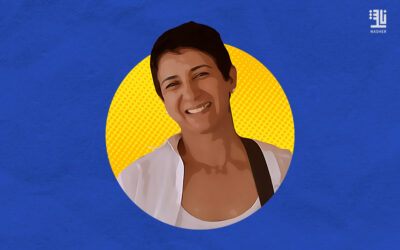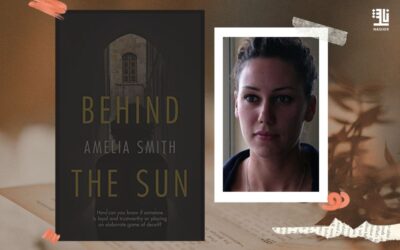Jaafar Al Aqili
The novelist Ibrahim Nasrallah says he lives in a time when he often finds himself busy defending every word he wrote, and never imagined his works would receive a prize.
In an honouring ceremony organised by the Abdul Hameed Shoman Cultural Foundation to celebrate him after Ibrahim won the 2018 International Prize for Arabic Fiction award for The Second War of the Dog, he said that defending human freedom and dignity, the homeland and right to life, hope and future is the only way to justify his existence.
He stressed that every novel he wrote before The Second War of the Dog, became an essential part of this one; every experience he lived was part of it too. He said that his award-winning work found its basis in the great pain and suffering witnessed by the region and at a time when the more people pushed to claim their right to be free, the deeper in the shackles of new forms of occupation they found themselves. “Occupation by a visible enemy, a hidden enemy, or the one inside us,” he said.
He believes that the impact of this tragedy is doubled by the fact that “many countries of the world practice arrogance, aggression, discrimination and greed, which have deformed our planet”. Every unjust triumph will lead to a future where our children and grandchildren will suffer from longer and harder wars, because they will always be busy defending the unjust victory of their fathers and forefathers.
Nasrallah pointed out that this novel tackles human suffering caused by extremism and blind killing, indicating that this extremism not only comes from the explicit so-called evil organizations, but includes individuals and organisations that claim tolerance and acceptance of freedom of opinion and belief. On the contrary, they manipulate their people and spread violence. This created institutions that played a key role in paving the way for blind wars that are similar to “the Second War of the Dog”.
Nasrallah believes that the kind of literature he presents in his work is not a cure, rather a “curse of truth”; the truth around us, the truth of what we are suffer from today – not only as Arabs, but also as human beings.
He explained that an author writes to make a radical change in the world not a minimal one: “When we write about madness, we write using our minds, but we have to go beyond the limits of madness to express ourselves in a convincible way”.
Nasrallah saluted the “qualitative readers and critics” who help a writer recognise the importance of writing on new topics every time, and who wait for their new works portraying a wider vision, openness and higher literary taste than displayed in earlier works. He asserted: “Our mothers and grandmothers told us stories to help us sleep, and today, we are reviving these stories as an attempt to awaken the world.”
The author Sameh Khidr said: “The Second War of the Dog is Nasrallah’s sixth book that deals with social and existential issues, which are rather complex and absurd when thought of outside the literary world. He devoted The Palestinian Comedy series to reflect on the history of Palestine and its struggle to fight colonialism.”
He also pointed out that Nasrallah gives us a unique picture of the “pure” Palestinian cities in Time of the White Horses, The Lanterns of the King of Galilee and in The Palestinian Comedy. Through these works, he urges the reader to think about changes experienced by Arab cities in a dystopian context.
Khidr observed that a good author is one who inspires other authors, not just readers. He quotes Mahmoud Darwish, the famous Palestinian poet, who said: “A great writer is the one who makes me feel great when I read and modest when I write.”
Saudi Arabian writer, Saad Albazei, believes that Nasrallah is reshaping the “dystopian- Orwellian” world with his unique point of view; by rethinking the relationship between an individual and state authority, which clearly comes out in First War of the Dog, based on a realistic vision yet represented through a terrifying fantasy world.
Academic Dr Ziad Zu’bi believes that Nasrallah, through his poetry, novels and writings, creates a deep dialogue based on his awareness of people’s experiences fused with his intellectual background, knowledge, abilities and literary tools.
Zu’bi said that Nasrallah’s experience in human culture stems from self-awareness as an intellectual. He added that the novel Prairies of Fever (1985) made Nasrallah an extraordinarily creative novelist, which enabled him years later, to start writing the Second War of the Dog.
He explained that the sequel came after 30+ years of the First War of the Dog, but in the time that lapsed, the author was never desperate to repeat himself or produce a stereotype just for the sake of being published. “He was a beautiful novelist and now he is more beautiful one,” Zu’bi remarked.
Dr. Wafa Al-Khadra observes that the most important aspect of Nasrallah’s work is that it is easy, flexible and deeply rooted in folklore. She said that the novelist has successfully raised public awareness about the Palestinian cause, history and folklore, as well as the way Palestinian people are fighting against occupation. She added that he was able to take the literary text beyond political limitations, without any reproach and to build “a strong relationship with the homeland and national identity.”
Ibrahim Nasrallah, born in Amman in 1954, has achieved a brilliant presence in the literary medium, especially after he dedicated his life to writing since 2006.







